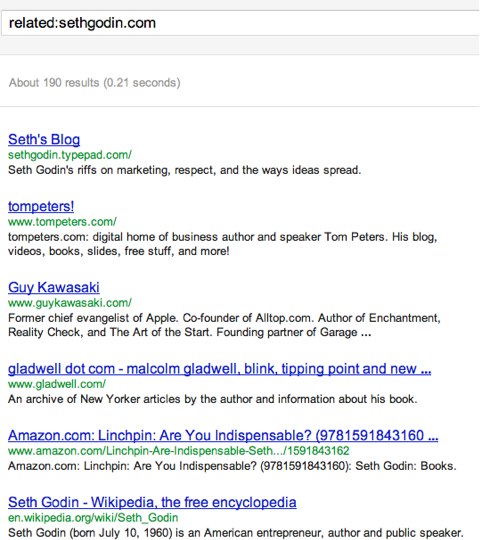
If you want to maximize your rankings on Google, what do you have to do? Well… other than write good content. You have to build links, right?
According to a survey SEOmoz did with 100 SEOs, the most important aspect of SEO is link building. But the big issue with link building is… everyone is already doing it. So, how the heck do you compete? Link blending and stage 2 link building are two things that very few SEOs are actually doing.
Here’s how you can leverage link blending and stage 2 link building.
Tactic #1: Link blending
Link blending is the process of building links to your site as well as other authoritative sites. Let’s say, for example, you have a website that sells bicycles online, and you convinced one of your female friends, Michelle, who runs a mom blog, to write a blog post about your bicycle site.
If you are trying to rank for the keyword “affordable bikes,” you are probably going to nudge your friend to link to your website with the anchor text “affordable bikes” because the more sites link to yours with that anchor text, the higher you will rank, at least theoretically.
If you want to rank really high, you want to ideally become an authority site. One way to do that is to keep on getting more and more links, but this ends up becoming very expensive in the long run.
Another way to do it is to get sites to link to you as well as other authority sites on the same page. That way search engines will start treating your website the same way they may treat other authority sites like New York Times or Wikipeda, which rank extremely high for almost every term out there.
So, going back to your friend Michelle, who runs a mom blog, you wouldn’t just have her link to your website, but in that same blog post, you’ll want her to link to a Wikipedia article on the history of bicycles and a study Harvard did on bicycle safety for kids.
When she links to Wikipedia and Harvard, you have to make sure she doesn’t use rich anchor text links to link to them as they can easily start outranking you if she does that.
And to be even more cautious, if you are building 10 links to your bicycle site, make sure you don’t link to Wikipedia and Harvard 10 times as that would be unnatural. Instead, you would want to get other people to link to other authority sites that talk about bicycles…be it an article on about.com on how to assemble a bike or Los Angeles Times article on the importance of wearing helmets.
By leveraging the tactic of link blending, you’ll start noticing that when you do a “related” search on Google, it will show a list of all the other authoritative sites you are related to:

Plus, you’ll also start to rank a lot higher without having to buy as many links as your competitors.
Tactic #2: Stage 2 link building
Have you ever heard an SEO tell you that you want to build related links because those help the most? So, if you own a bicycle site, you want links from other bike sites or outdoor activity sites.
Although most SEOs are correct, their definition of a “related link” is a bit different than mine. For me, a related link means you are getting a link from another web page that ranks in the top 100 results on Google for the keyword you are trying to rank for.
I know, you are probably wondering how the heck do you get someone who ranks for your keyword to link to you? You could buy them although that goes against Google’s policy, and I don’t recommend you break Google’s policies. Plus, someone who ranks in the top 100 for your keyword is probably not going to link to you.
Another solution is what I call stage 2 link building. Let’s go back to your friend Michelle, who wrote a blog post that links to your website about “affordable bikes for your children.” That blog post in most cases won’t even rank in the top 1,000 results for the term “affordable bikes”, but if you build a handful of links to that blog post with the anchor text “affordable bikes,” it will start showing up in the first few hundred, if not top 100, results for that term.
If you accomplish that, which isn’t too hard, that link will be highly related. Plus, you’ll rank a lot higher for your key terms without having to build a ton of links.

Comments (0)